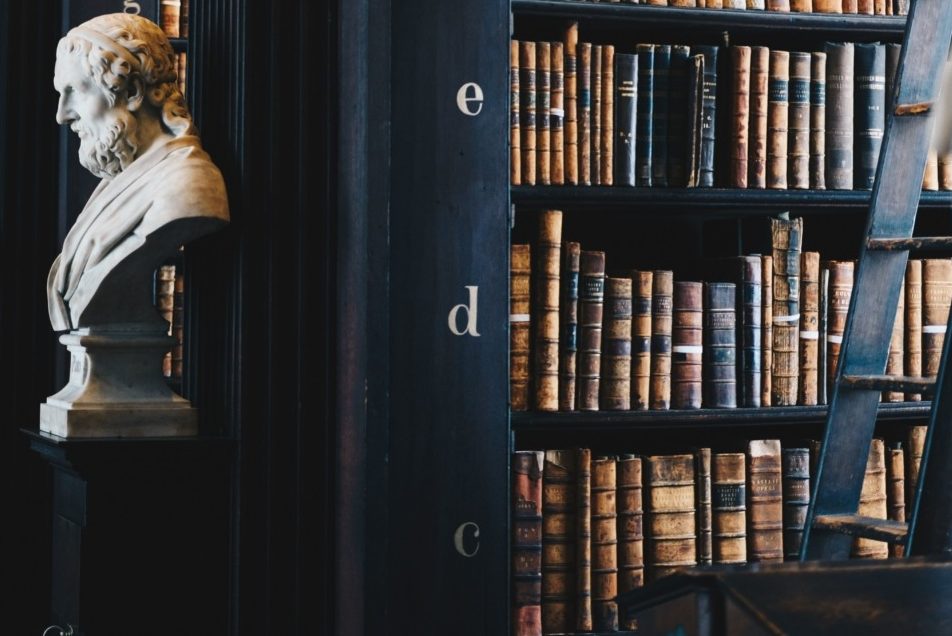Classics vs. contemporary: which team are you on?
If you ask any avid reader what their favourite book is, they’ll probably reply with the one written almost a century ago. At Warwick, it’s either this or one of Haruki Murakami’s brilliant texts.
Truth be told, I still can’t decide whether Never Let Me Go should move up in my personal ranking without being considerably biased towards the classics. So, I had to ask myself: what makes people more inclined to read the classics versus going through the most recent bestsellers? For some, it’s the story, for others, the characters. Whatever reason they may have for their choice, one things is clear – they always prefer one or another.
Deadlines come and go, weeks pass by rapidly but one of the few things keeping you sane amid your responsibilities is falling back on the different world of the book in your hands. However, you can’t transfer yourself into another universe unless you feel drawn into the story.
Civil wars, revolutions and other historical moments have contributed to who we are today and this can only make us appreciate how things have changed over time
For decades, writers have been looking for the ‘perfect novel’ formula. A bit of suspense, a negative character which makes you love them nonetheless; whatever it might be, the story needs to take the reader on a fascinating journey, full of ups and downs. There are no clear advantages or disadvantages for the two types of books when it comes to their narratives. Here, it’s solely a matter of taste.
When it comes to the historical side of novels, the classics are rightfully preferred in the face of the contemporary ones. One of the greatest advantages these offer is an understanding of the feelings of our predecessors during difficult historical times. Civil wars, revolutions and other historical moments have contributed to who we are today and this can only make us appreciate how things have changed over time.
With contemporary texts, one of the great advantages is that they stimulate your creativity by throwing plenty of powerful ‘what if?’s at you. What if the future will truly be dystopian? What if you were to live in a different culture? All the possibilities that contemporary novels lay in front of us can make us dream a little more and appreciate what we have right now – not because of the horrors of the past, but because of what the future might hold.
A clear downside to contemporary novels is how often you might encounter superficial characters such as shallow ‘it’ girls or boys who are part-time ghosts or werewolves
In the words of David Hume, “mankind are so much the same, in all times and places,” so we can only conclude that the classics give us a more compelling perspective on the universality of our feelings. Whether you cry for Anne Frank or you pity Dorian Gray, your empathic responses are strengthened by the atemporal feeling you get when you try to walk in these characters’ shoes.
On the other hand, you might find it easier to empathise with a character which you can relate to. Maybe they are in the same age group as you or they have similar career interests, but these obvious similarities might draw you to better understand their story. A clear downside to contemporary novels is how often you might encounter superficial characters such as shallow ‘it’ girls or boys who are part-time ghosts or werewolves.
The timeline of different novels brings us to one of the most disputed difference between the two types of books: content. Regardless of what epoch you’d prefer to transfer yourself into, as a reader, you wouldn’t stick with the book if it didn’t make you think or learn something.
While classics might offer incredible well-written stories, sometimes the use of various words puts readers in difficulty
When it comes to classics, their timeless value cannot be contested. However, this is where contemporary novels lose quite a lot of points. Creating bestsellers has lowered the worth of contemporary novels as their value is being artificially created. The storytellers have to focus on what sells instead of what makes people feel. The use of popular culture, superficial topics, and sometimes even ‘innocently’ placed advertisements have driven away passionate readers.
While classics might offer incredible well-written stories, sometimes the use of various words puts readers in difficulty. This seldom happens with contemporary books as they are usually written in an style which is easier to comprehend.
At the end of the day, the differences balance each other out and whatever team you’re on, it’s up to you to decide which fictional universes are more suitable for you. But remember, there are plenty of literary gems out there which are waiting to be discovered, regardless of the year they’ve been published in.

Comments
Comments are closed here.